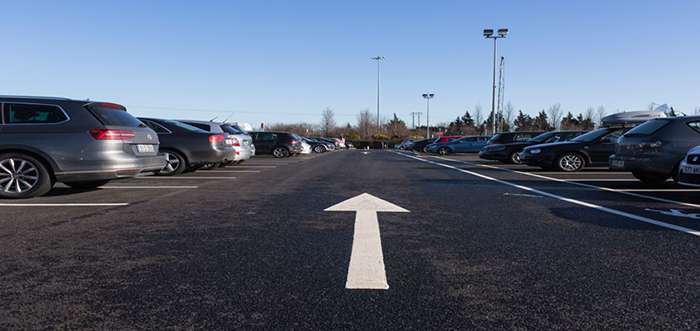Oireachtas hears why cars should be parked away from residences to discourage driving

Car parking spaces should be located away from homes to discourage usage
There is no doubt that there is an ongoing campaign by governments and legislators to curtail the use of personal transport and the latest Transport-orientated development presented to the Oireachtas is calling for the active discouragement of car-usage and ownership.
The proposal asserts that by reducing parking availability and also purposely situating car park spaces away from residences, it will discourage you from using your car. The purpose is to have your cars parked at garages at the outskirts of developments.
The idea was presented to the Oireachtas housing committee in the discussion about urban regeneration. The Oireachtas housing committee met on Tuesday with Dr Cathal FitzGerald, senior analyst at the National Economic and Social Council (Nesc) on the matter of urban regeneration. The analyst said:
It was recognized that any plans for regeneration would only be possible with the availability of transport.
"Transport-orientated development means locating higher-density housing, typically in excess of 50 dwellings per hectare, within a radius of 400m to 800m of a transport stop.
"That transport stop is usually light rail or a dedicated bus corridor serving rapid bus transport (BRT). So, more of the homes are walking or cycling distance from public transport. That transport must be high quality, high frequency and be integrated in a network.
“Transport-orientated development also means active discouragement of car-usage and ownership, by reducing parking availability or situating parking away from homes, at garages at the outskirts of the development."
The committee also heard from Fianna Fáil Dublin North-West TD Paul McAuliffe told those attending the meeting that in his constituency, Finglas, Ballymun and Santry have been left at risk of dereliction because they are "sandwiched" between two local authorities and much of development proposed is overly intense.
Dr Sarah Rock of TU Dublin also addressed the committee and said that all new developments should be made walking friendly. When discussing regeneration, she said, the "rush tends to be towards other modes of transport", but if areas, particularly older areas, are not walkable, they will not succeed.
Eoin Ó Broin of Sinn Féin said that there was certainly more that needed to be done to ensure the planning process on transport projects was less divisive than at the moment and should receive more input.
Dr Lorraine D'Arcy of TU Dublin told Eoin Ó Broin of Sinn Fein that the Irish transport system was "fundamentally based around the commute", meaning there is a policy bias towards that form of travel. She went on to say that more should be done to promote "all-day travel".
A member of the Cork Cycling Campaign, Conn Donovan, told the committee that development of homes must not be used to justify more road infrastructure. He said if communities are being asked to make 70-80% of their journeys without private cars, they should not be in "high-car" environments.
So what do you think? Would you like to live in an apartment, where your car is parked at the other end of the development?
Many would say that, you could walk the same distance as a bus stop or train station, but which would you prefer then, hop in your own car, or stand in the cold and rain for a bus that won’t leave you anywhere near your final destination?
Author

Justin Kavanagh
Justin Kavanagh is a recognised leader
in automotive intelligence and vehicle
data supply to the entire motor industry.
He has almost 20 years experience in
building systems from the ground up.
As the Managing Director of Vehicle
Management System, he understands the
need and importance of trustworthy and
reliable vehicle history and advice to
both the trade and the public.
Follow me on LinkedIn